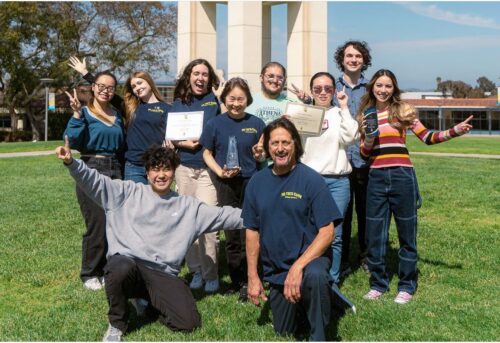There’s plenty of research showing the importance of being engaged on campus — you’ll be more persistent and resilient, gain leadership experience, grow your passions, increase soft skills, and be more likely to graduate.
But engaging with others at your college — even your professors — can be difficult in a virtual environment. In our recent workshop for online learners, panelists discussed how and why you should connect with peers and participate in student organizations.
Start with some research. Take a virtual tour of your college and explore the website. Knowing what opportunities your school offers and where to look for them is half the battle. Keep a close eye on your student email account and follow your college’s student life department on social media. Ask friends what organizations they belong to, keeping in mind that every school’s offerings will look different.
Connect with your instructors. This is a key part of staying engaged with your online courses, but it will also put you more in tune with the opportunities at your college. Many professors also serve as advisors for student organizations, and they will be looking for students who are interested in being involved. Developing a good relationship with your instructor will also be important if you start struggling in class — they can point you to helpful resources.
Consider your passions. Most schools offer a wide variety of student organizations. Rather than joining as many as you have time for, think about what you’re passionate about and see if there are one or two clubs that will help you develop that passion. You’re more likely to be an active member if you actually care about the mission.
Think about skills you want to grow. With many student organizations still trying to figure out how they’ll meet and conduct service activities, leadership will be needed. Speak up if you have an idea on how to gather people online in a fun and meaningful way. Public speaking is easier when you can’t see your audience, so this is a good opportunity to get in some practice. You’ll also pick up some online marketing experience.
Boost your resume. This one may be a given — everyone knows extracurricular activities look good on a resume — but potential employers, scholarship providers, and four-year college admissions reps will want to know what you did with your time in the pandemic. Helping an organization transition to virtual meetings and finding creative ways to accomplish service projects within social distancing constraints will do even more to increase your value. Plus, you need a way to connect with faculty members and others at your school who can write letters of recommendation for you.
Watch the full Workshop for Online Learners, Part 2:




